White quartz countertops are prized for their durability, elegance, and non-porous surface, which makes them resistant to staining. However, accidents happen, and stains can still occur if substances are left on the surface for extended periods. Understanding how to remove stains effectively without damaging your quartz countertop is crucial for maintaining its pristine appearance.
The first step in removing a stain from a white quartz countertop is to identify the type of stain. Different substances require different cleaning approaches. Common culprits include coffee, wine, oil, and food dyes. Knowing what caused the stain can help you choose the most effective cleaning method. In general, it’s best to address stains as soon as possible to prevent them from setting.
For fresh stains, start with a gentle approach using warm water and mild dish soap. Dampen a soft cloth or sponge with soapy water and gently scrub the stained area. Quartz countertops are non-porous, so light scrubbing should remove most stains. Rinse the area with clean water and dry with a soft cloth to avoid water spots.
If the stain persists, you can use a mixture of baking soda and water to create a gentle, abrasive paste. Apply the paste to the stained area and let it sit for a few minutes. Using a soft cloth, rub the paste in a circular motion to lift the stain. Baking soda is a mild abrasive that won’t damage the quartz surface when used properly. After scrubbing, rinse the area thoroughly with water and dry with a soft cloth.
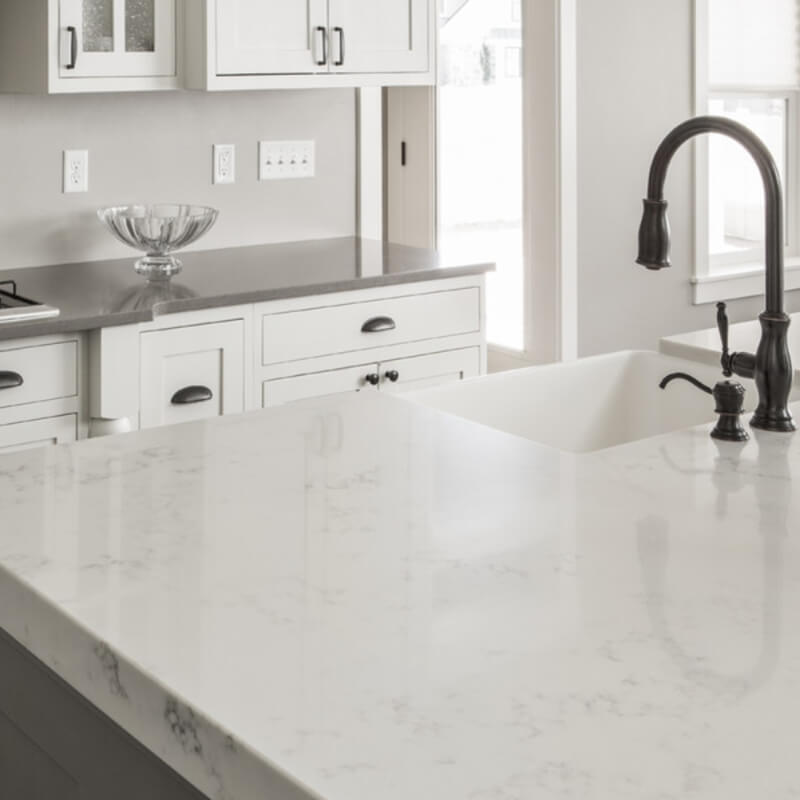
For tougher stains, a non-abrasive cleaner specifically designed for quartz surfaces can be more effective. These cleaners are formulated to break down stains without harming the quartz. Apply the cleaner according to the manufacturer’s instructions, allowing it to sit on the stain for the recommended time before wiping it away with a soft cloth. Always rinse and dry the area after cleaning to remove any residue.
Oil-based stains, such as those from cooking oils or greasy foods, can be more challenging to remove. In such cases, a degreasing cleaner or a mixture of isopropyl alcohol and water can be effective. Spray the solution on the stained area and let it sit for a few minutes before wiping it away with a soft cloth. Rinse and dry the area thoroughly to ensure all residue is removed.
For stains caused by hard water or mineral deposits, a vinegar solution can be used. Mix equal parts vinegar and water in a spray bottle and apply it to the stained area. Let it sit for a few minutes, then scrub gently with a soft cloth or sponge. Rinse thoroughly with water and dry with a soft cloth. Be cautious with vinegar as prolonged exposure can dull the surface of the quartz, so always rinse well and limit its use.
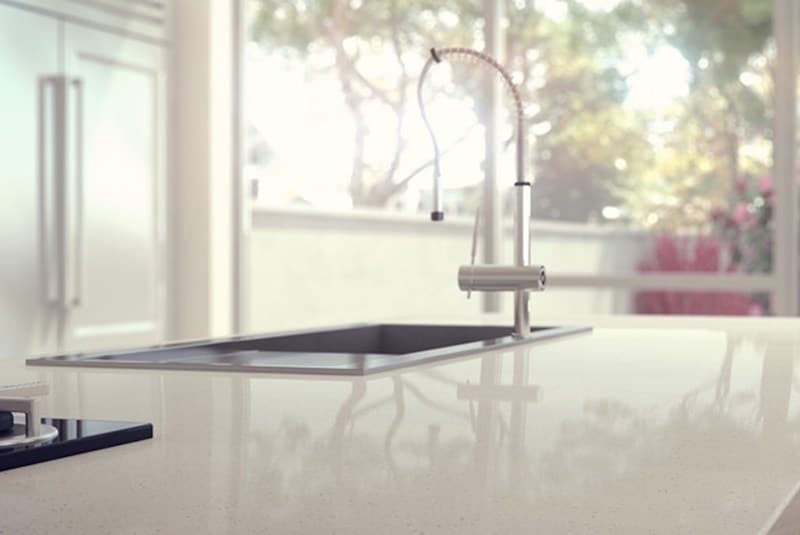
Ink and dye stains, such as those from markers or food coloring, may require a more potent approach. Apply a small amount of hydrogen peroxide to the stained area and let it sit for a few minutes. Using a soft cloth, gently scrub the area until the stain lifts. Rinse and dry the area thoroughly. Hydrogen peroxide is effective but should be used sparingly and tested in an inconspicuous area first to ensure it doesn’t affect the quartz’s color.
If the stain is still visible after trying these methods, a commercial quartz stain remover can be your next option. These products are specifically formulated to handle stubborn stains on quartz surfaces. Follow the instructions carefully, and always test the product in a small, hidden area first to avoid any potential damage.
In addition to these cleaning methods, regular maintenance can help prevent stains from occurring in the first place. Wipe up spills immediately, and avoid using harsh chemicals or abrasive cleaners that can damage the surface. Using cutting boards and trivets can also protect your quartz countertops from potential stains and scratches.
For routine cleaning, use a mild dish soap and water solution with a soft cloth. This will help maintain the shine and cleanliness of your quartz countertops without risking damage. Avoid using bleach, ammonia, or acidic cleaners, as these can break down the bonds between the resin and the quartz, leading to potential damage over time.

If you’re dealing with particularly stubborn stains or if you’re unsure about how to proceed, consulting a professional can be a good idea. They have the expertise and tools to handle difficult stains without damaging your countertop. Investing in professional cleaning can help preserve the beauty and longevity of your quartz countertops.
To protect your countertops, consider using coasters, placemats, and trivets. These small precautions can prevent spills and stains from setting and reduce the risk of scratches or heat damage. Educating everyone in the household about proper care can also go a long way in maintaining your countertops.
In summary, while white quartz countertops are highly resistant to stains, it’s important to act quickly when spills occur. Using the appropriate cleaning methods and products can effectively remove most stains without damaging the surface. Regular maintenance and preventative measures will keep your countertops looking beautiful for years to come.

Common Mistakes to Avoid:
Using Abrasive Cleaners or Pads: These can scratch the surface of the quartz, dulling its shine and making it more susceptible to future stains.
Ignoring Spills: Allowing spills to sit can cause stains to set, making them more difficult to remove.
Using Harsh Chemicals: Cleaners with bleach, ammonia, or high acidity can damage the resin in quartz countertops, leading to discoloration and weakening the surface.
Not Rinsing Thoroughly: Leaving cleaning residues can cause build-up and dull the surface over time.
Using Too Much Pressure: Scrubbing too hard can damage the surface. Gentle cleaning with the right products is more effective.

Can I use vinegar to clean the stains on my white quartz countertop?
While vinegar can be effective for removing mineral deposits and hard water stains, it should be used with caution. Vinegar is acidic and can dull the surface of quartz if used frequently or left on the surface for too long. Always dilute vinegar with water (equal parts) and rinse thoroughly after cleaning. Limit its use to occasional spot cleaning and opt for mild dish soap and water for routine cleaning.
How do I remove coffee stains from my white quartz countertop?
To remove coffee stains from your white quartz countertop, start with a mixture of mild dish soap and warm water. Apply the solution to the stain and gently scrub with a soft cloth. If the stain persists, create a paste using baking soda and water, apply it to the stain, and let it sit for a few minutes. Gently rub the paste in a circular motion, then rinse thoroughly with water and dry with a soft cloth. For stubborn stains, a non-abrasive cleaner designed for quartz may be necessary.
What should I do if the stain doesn’t come off with regular cleaning methods?
If the stain doesn’t come off with regular cleaning methods like mild soap and water or baking soda paste, try using a commercial quartz stain remover. These products are formulated to handle tough stains on quartz surfaces. Follow the manufacturer’s instructions carefully and always test the product on a small, inconspicuous area first. If the stain remains, consider consulting a professional cleaner with experience in quartz surfaces.
Is it safe to use hydrogen peroxide on quartz countertops?
Yes, hydrogen peroxide can be used on quartz countertops to remove stains like ink or dye. Apply a small amount of hydrogen peroxide to the stained area and let it sit for a few minutes. Gently scrub with a soft cloth until the stain lifts, then rinse thoroughly with water and dry with a soft cloth. Use hydrogen peroxide sparingly and always test in an inconspicuous area first to ensure it doesn’t affect the color of the quartz.
How can I prevent stains on my white quartz countertop?
Preventing stains on your white quartz countertop involves regular maintenance and taking protective measures. Wipe up spills immediately to prevent them from setting. Use cutting boards and trivets to protect the surface from scratches and heat. Regularly clean the countertop with a mild dish soap and water solution using a soft cloth. Avoid using harsh chemicals, abrasive cleaners, or pads that can damage the surface. Educate everyone in the household about proper care to maintain the countertop’s pristine condition.

Can Quartz Countertops Stain – Slabworks of Montana
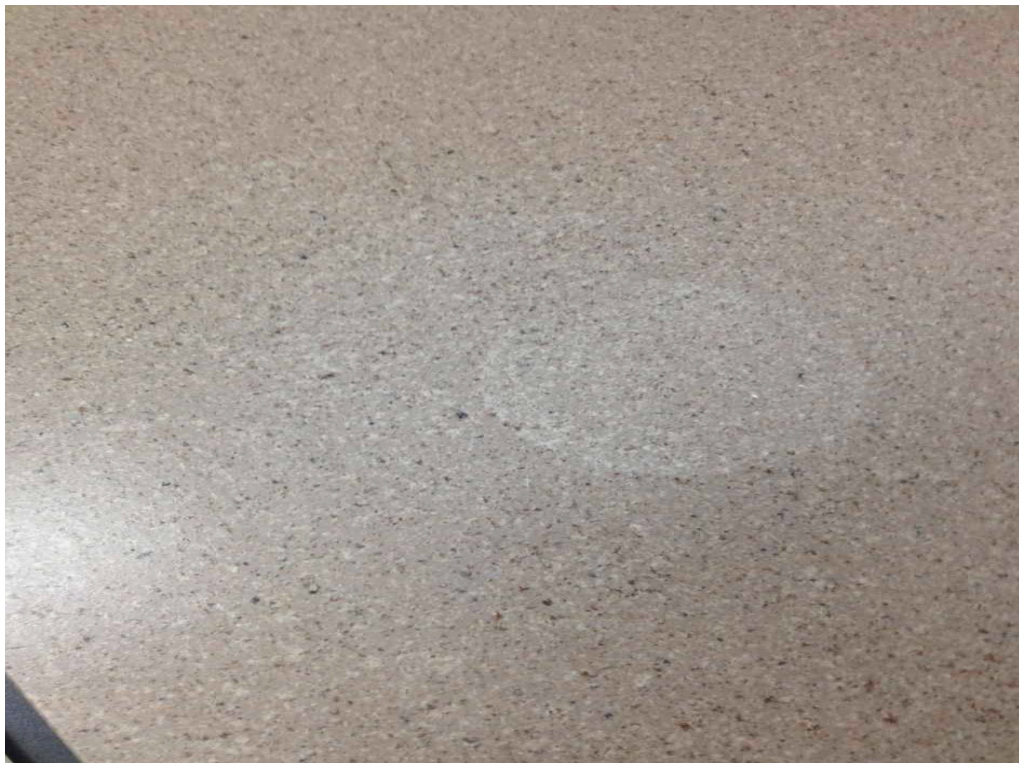
How to Clean White Quartz Countertops with These Life Saving Tips
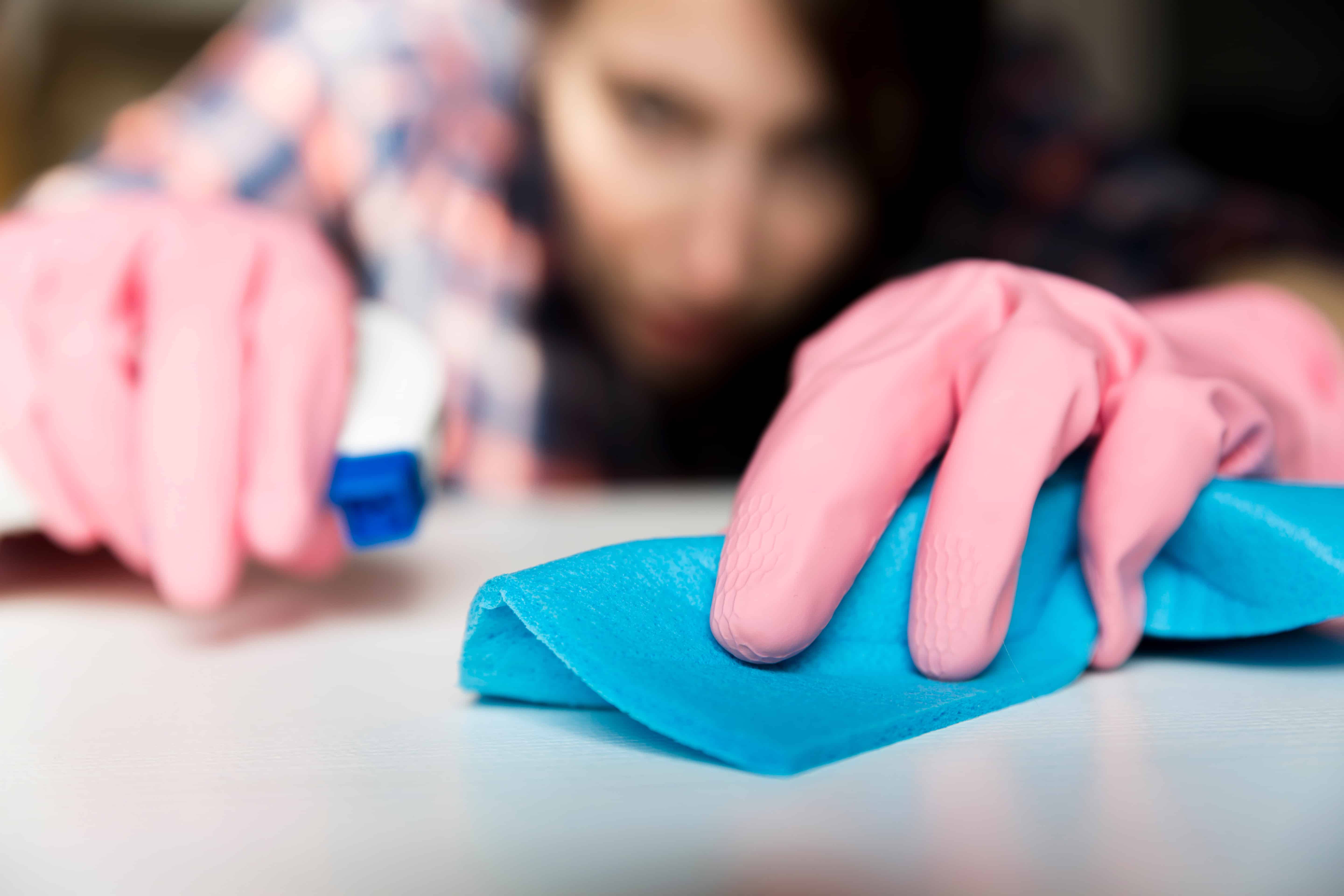
The Only How To Clean Quartz Countertops Guide You Will Ever Need
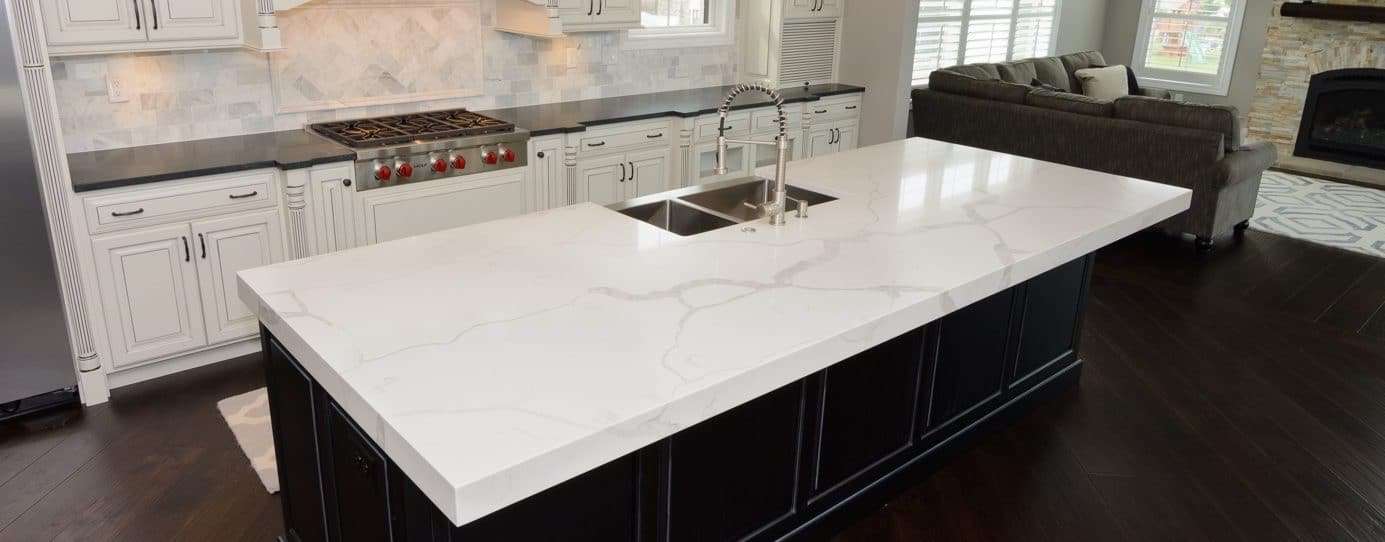
How to Remove Stains from Quartz Cosmos Surfaces

How to Clean Quartz Stone Countertop – Remove stains caesarstone Stone Granite Marble Quartz

Cleaning Quartz Worktops Calacutta removing stains

Related articles: